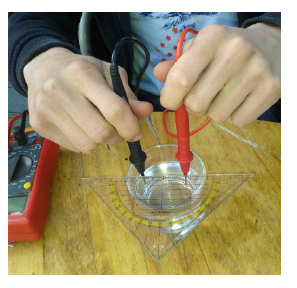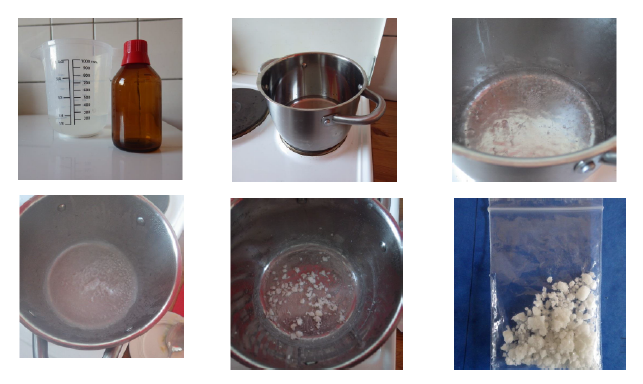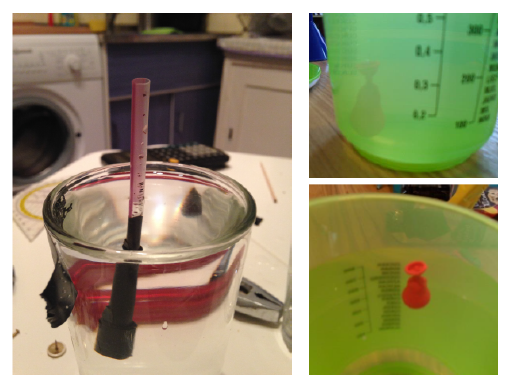
Guest post: Estimating salinity as a homework assignment
Today I am super excited to share a guest post that my awesome friend Joke Lübbecke wrote for us. Joke is a professor in physical oceanography in Kiel, and we like to chat about teaching occasionally. She has great ideas for exciting tasks for students to do and I bet they learn a lot from her. Here is what she writes (and the photos in this post are the original photos that her students kindly agreed to let us use on this blog. Thanks very much!):
Estimating salinity as a homework assignment
When I gave the second-year oceanography students in my class bottles of salt water and – without any further instructions – asked them to find out what the salinity was, I wasn’t really sure what to expect. Would they just take a sip and guess 35? Would they all use the same approach? So when they handed in their solutions in the following week I was very happy to see how creative they had been and how many different things they had tried to get to an answer. For example, they had
- Evaporated the water and weighted the dry salt
- Used differences in buoyancy between salt and fresh water
- Measured the electric resistance of the sample, then tried to mix a solution with the same resistance by adding more and more (defined quantities of) salt to a fresh water sample

Measuring salinity by measuring the resistance of the sample and reproducing a sample with known salinity and the same resistance
or simply
- Tasted the sample and compared to water samples with known salinities :-)
The numbers they came up with were as diverse as their approaches so this was also a nice demonstration of the difficulties to accurately measure salinity.
(And of course the salinity of the water sample they got was about 35, but who cares? – the journey is the reward!)


Throwback Thursday: Can you taste the difference? Or how do you estimate salinity? | Teaching Ocean Science says:
[…] This is a repost, first published here […]
"Excursion week" in Oceanography 101 while physically distancing - Adventures in Oceanography and Teaching says:
[…] place samples somewhere where students can easily and safely pick them up, you could for example give them salt water samples and ask them to figure out the sample’s salinity, or give them a fresh water and a salt water sample and ask them to figure out which one is which […]
#KitchenOceanography as #FieldWorkFix - Adventures in Oceanography and Teaching says:
[…] to using them as hands-on experiments within class, we gave them as homework. One task was to find a way to measure the salinity of a water sample the students were given, and came up with many surprising and creative solutions. In this setting, […]